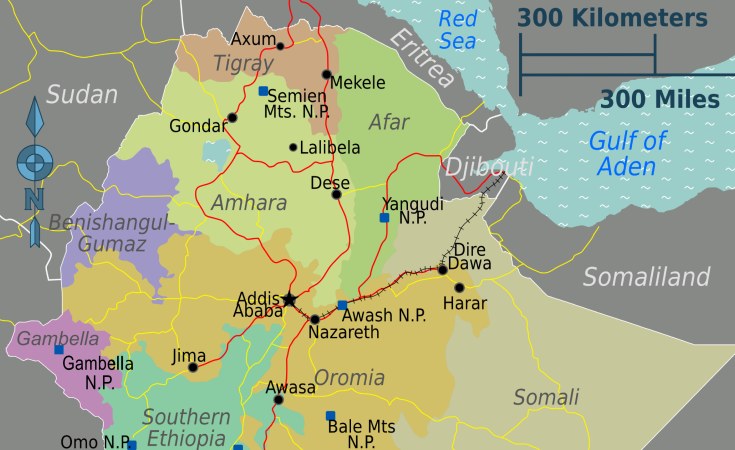Addis Abeba — The UN Human Rights Council during an interactive dialogue with the International Commission of Human Rights Experts on Ethiopia (ICHREE) on Tuesday warned that the gravity and scale of the violations committed in Ethiopia since the outbreak of war, November 2020, must not be forgotten despite all the positive developments and relatively improved security that have seen in Tigray after both parties signed agreement.
The Federal Government and the Tigray People's Liberation Front (TPLF) signed AU-led Cessation of Hostilities Agreement on November 2, in Pretoria, South Africa after the two-years atrocious war.
The International Commission of Human Rights Experts on Ethiopia presented its first report to the UN Human Rights Council, in September last year, in which it said there were reasonable grounds to believe war crimes, and crimes against humanity were committed. Since then, a significant improvement in the situation in Ethiopia and sustained reduction in conflict.
"The previous report found reasonable grounds to believe that all parties to the conflict had committed war crimes and violations and abuses of human rights since fighting erupted," said Mohamed Chande Othman, chairperson of the International Commission of Human Rights Experts on Ethiopia.
During the discussion, it was reported that the commission is still looking into wartime human right violations together with abuses that occur after the peace agreement, reads a statement by the Office of the United Nations High Commissioner for Human Rights (OHCHR), "The conclusion of the peace agreement between the government and the TPLF was a significant step, but it was still necessary to look into alleged violations that may have occurred prior to and after the agreement if a lasting peace with full respect for human rights was to be achieved."
Representatives from Ethiopia also discussed that the government is overseeing full implementation of lasting peace, which is the main focus, through a signed peace agreement, convened by African Union; "Humanitarian aid supply was significantly increased, and services were restored, as the second pillar of peace implementation while disarmament, demobilization and reintegration of former combatants, as overseen by the African Union, was a third mechanism."
Holding an independent, transparent, and impartial investigations into all allegations of violations and abuses of international human rights law, violations of international humanitarian law, and international refugee law was essential step to fight impunity and contribute to holding those responsible to account, said the Ethiopian Human Rights Commission.
"Accountability and transitional justice must remain at the core of the peace process."
The Ethiopian commission also called for further progress on the implementation of the agreement and declaration, continued and unimpeded humanitarian access, and the further expansion of basic services in conflict-related areas in northern Ethiopia.
The Commission had consulted with a wide range of stakeholders to inform its investigation priorities and strategy, investigating alleged violations in Tigray, Afar, Amhara, and Oromia, says the report. It addressed a notably attacks on civilians, sexual and gender-based violence, and denial of humanitarian assistance; also, other violations including arbitrary detention, violation of children's rights, and hate speech.
As required by the mandate, the commission was investigating alleged violations by all parties, including Eritrean forces operating on Ethiopian territory.
Meanwhile in a statement released on Wednesday, Human Rights Watch (HRW) said Ethiopia should go hand-in-hand with backing for a UN body charged with carrying out an independent investigation.
"Statements that suggest shutting down the UN experts group undermine progress toward accountability. While the US and other donor nations are supporting nongovernmental groups to gather information of alleged crimes, this is no substitute for the critical investigative work of the International Commission of Human Rights Experts on Ethiopia, which has the mandate to establish the facts of alleged violations, identify those responsible, preserve evidence, and provide guidance on accountability and transitional justice," stated .
However, despite repeated requests, the Ethiopian Government had not yet allowed the investigation team access to the country, according to the report. The Commission was conducting much of work remotely. The Government should reconsider its decision not to cooperate with the Commission. AS


